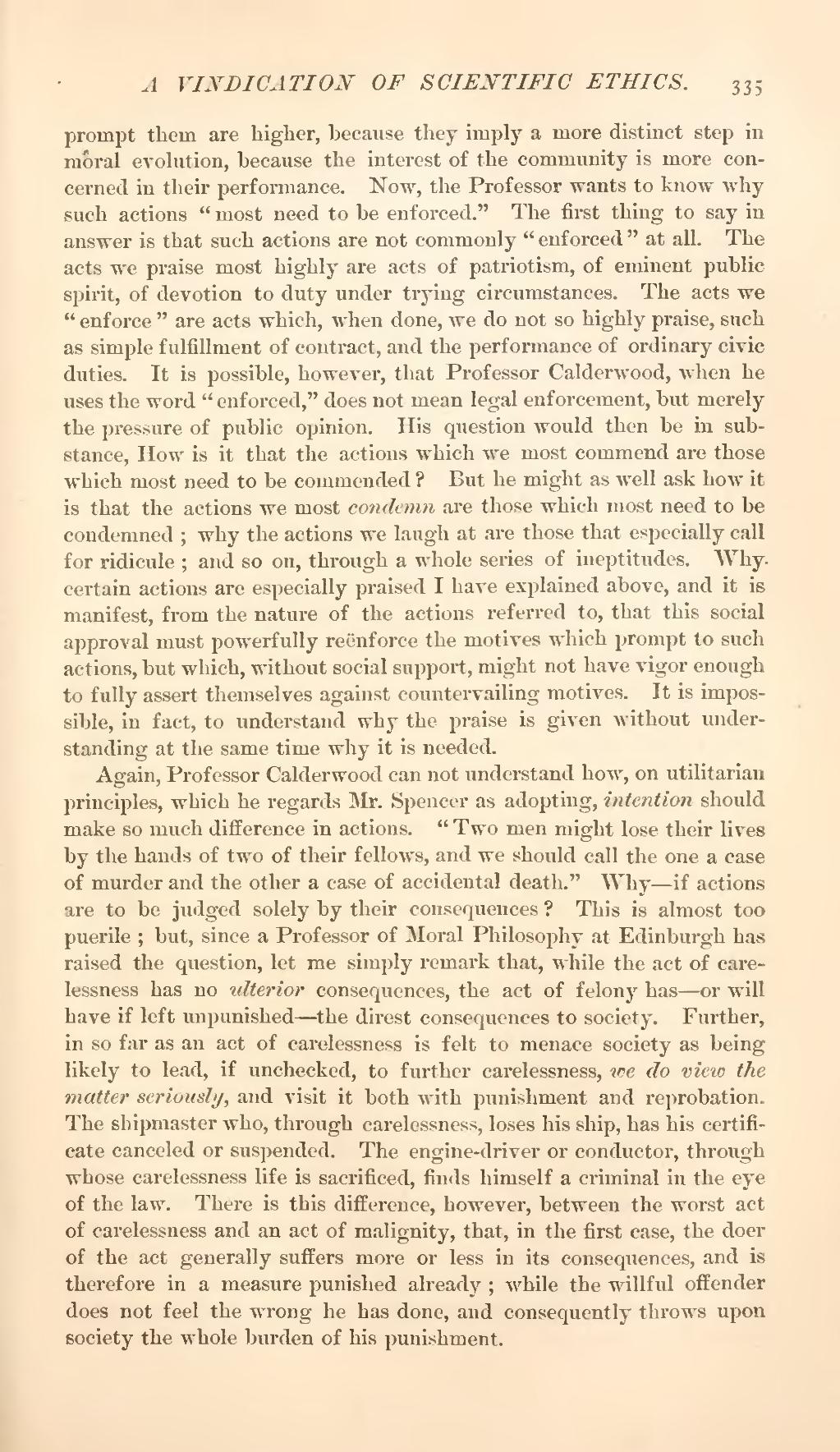prompt them are higher, because they imply a more distinct step in moral evolution, because the interest of the community is more concerned in their performance. Now, the Professor wants to know why such actions "most need to be enforced." The first thing to say in answer is that such actions are not commonly "enforced" at all. The acts we praise most highly are acts of patriotism, of eminent public spirit, of devotion to duty under trying circumstances. The acts we "enforce" are acts which, when done, we do not so highly praise, such as simple fulfillment of contract, and the performance of ordinary civic duties. It is possible, however, that Professor Calderwood, when he uses the word "enforced," does not mean legal enforcement, but merely the pressure of public opinion. His question would then be in substance, How is it that the actions which we most commend are those which most need to be commended? But he might as well ask how it is that the actions we most condemn are those which most need to be condemned; why the actions we laugh at are those that especially call for ridicule; and so on, through a whole series of ineptitudes. Why. certain actions are especially praised I have explained above, and it is manifest, from the nature of the actions referred to, that this social approval must powerfully reënforce the motives which prompt to such actions, but which, without social support, might not have vigor enough to fully assert themselves against countervailing motives. It is impossible, in fact, to understand why the praise is given without understanding at the same time why it is needed.
Again, Professor Calderwood can not understand how, on utilitarian principles, which he regards Mr. Spencer as adopting, intention should make so much difference in actions. "Two men might lose their lives by the hands of two of their fellows, and we should call the one a case of murder and the other a case of accidental death." Why—if actions are to be judged solely by their consequences? This is almost too puerile; but, since a Professor of Moral Philosophy at Edinburgh has raised the question, let me simply remark that, while the act of carelessness has no ulterior consequences, the act of felony has—or will have if left unpunished—the direst consequences to society. Further, in so far as an act of carelessness is felt to menace society as being likely to lead, if unchecked, to further carelessness, we do view the matter seriously, and visit it both with punishment and reprobation. The shipmaster who, through carelessness, loses his ship, has his certificate canceled or suspended. The engine-driver or conductor, through whose carelessness life is sacrificed, finds himself a criminal in the eye of the law. There is this difference, however, between the worst act of carelessness and an act of malignity, that, in the first case, the doer of the act generally suffers more or less in its consequences, and is therefore in a measure punished already; while the willful offender does not feel the wrong he has done, and consequently throws upon society the whole burden of his punishment.
